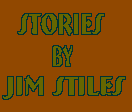

Sadly, the end of summer is drawing near. Most of us have been lucky enough to get away for a lazy, hazy week or two. It's such a relief to escape the hurly-burly that fills every American city with annoying hassles and petty distractions. Or is it?
During my recent visit to several national parks, I noticed how hard it's becoming to find a peaceful haven in the great outdoors. Despite the gorgeous scenery, I was disappointed by the human-made noise I encountered: talkative hikers, droning airplanes, hungry chain saws, chirping cellphones, intrusive radios, and buzzing powerboats. The most popular parks I visited were saddled with traffic jams reminiscent of freeway rush hours. Experts agree that our peace-impaired wilderness is merely the latest symptom of a noise epidemic that has swept the country.
In 1998, for example, natural sound recordist Gordon Hempton toured 15 states and found only two-remote parts of Colorado and Minnesota-that were free of such human-made clamor as airplanes, amplified music, chain saws, gunfire, and all-terrain vehicles for more than 15 minutes during daylight hours.
A few years earlier, Hempton had found those same areas to be sanctuaries of the kind of hear-a-pin-drop silence that most Americans under 30 have probably never experienced. Deep silence is critically endangered. As the 21st century unfolds, the mechanical racket of the Industrial Revolution and the electronic beep of the Information Age conspire to obliterate the balm of natural silence that once soothed humankind. Not only does our clatter invade nearly every public space-from beaches to mountains, shopping centers to airports-we seem compelled to let it invade our inner-sanctums of as well. We walk in our front doors and immediately flick on TV sets, radios, computers, or CD players; replay voice mail and answering machines; amuse our children with video games; and push buttons on gadgets we've installed in every room of the house.
This trend has me worried.
Lost from our daily routines is time to abide calmly with ourselves. That's too bad, because "quiet alone-time" is where I believe many of us touch the fullness of our possibilities. Clinical studies suggest that a sanctuary of stillness really can restore peace of mind, while reducing stress, expanding insight, and promoting a genuine sense of happiness and wellbeing.
Throughout history, the embrace of stillness has been a proven means for maintaining psychological equilibrium and acquiring self-knowledge. A primary value of quiet solitude is that the inner resources we develop can be directed toward whatever personal crisis is at hand. In this way, we obtain the tools, skills, imagination, and resilience for handling life's inevitable traumas and challenges. No wonder every American president has enjoyed a private refuge. Even during summer vacations, silence, stillness, and solitude are now squeezed to the margins-if they're available at all. I can't help asking: "If we never stop to listen to what's going on inside, how will be ever know what we feel, what we want, and, at our core, who we are?" Silence allows us to open a door to the unconscious mind, to feel the yearnings of the heart, to follow the wisdom of intuition, and to understand the truth of our experience. Here we get in touch our deepest secrets, strongest passions, fondest wishes, and happiest memories.
Stillness and solitude allow us, as 19th-century writer Henry David Thoreau reported during his retreat to Walden Pond, to "be completely true to ourselves." If we look hard, precious silence remains accessible to each of us. Quiet alone-time requires no special handshake, equipment, class, guru, therapist, pill, or jargon. Best of all, it costs nothing. It's as easy to find as a room with four walls, as soothing as a bubble bath, and as illuminating as a bright idea. Ten silent minutes of deliberate downtime in the early morning is a good start and can make a big difference in one's quality of life. Embracing stillness, silence, and solitude is not about wasting precious time. In fact, the opposite may be true. Mini-breaks can pay for themselves by making us more efficient in how we spend our most active hours. Experiencing solitude does not necessarily demand being physically alone, sitting quietly, or meditating.
It's all relative. We may be driving in a car, waiting in a line, taking a shower, lying in bed, walking in a park, listening to music, cooking food, puttering in a garden, swimming laps, walking a dog, or riding a stationary bicycle. Coaxed from the idle moments that already exist in our overbooked lives, quiet interludes will reveal and realign themselves. If we make it our intention to embrace stillness and silence, we will quickly discover how readily they can be welcomed into daily routines. We may conclude that less really is more, that a simpler life is a richer one.
Eventually, we may ease off the multi-tasking behavior and busy lifestyle that brought us to the point of desperately needing a vacation in the first place. And when we visit a park next summer, we'll recognize the importance of making less noise, as a courtesy to ourselves as well as others. Richard Mahler is a writer based in Santa Cruz, CA. His latest book, Stillness: Daily Gifts of Solitude, was published in April by Red Wheel. rmahler@cybermesa.com







